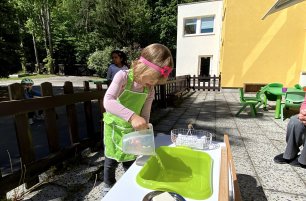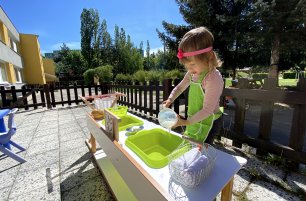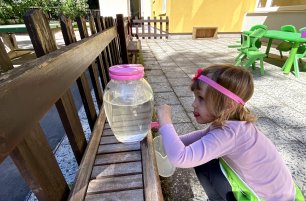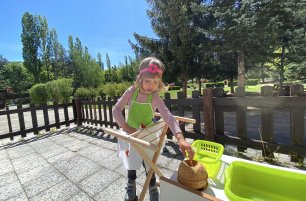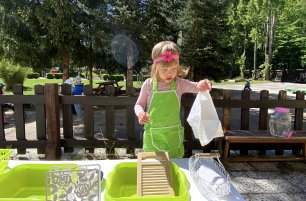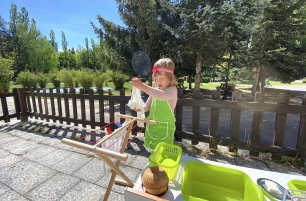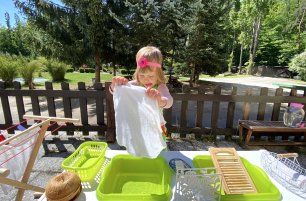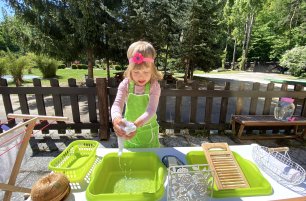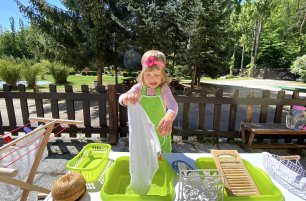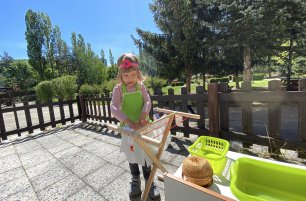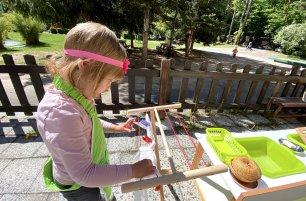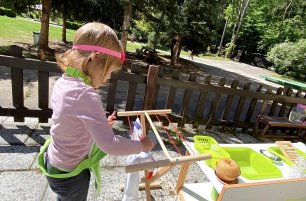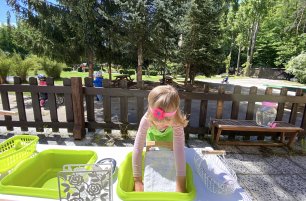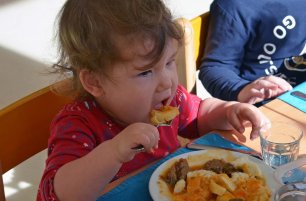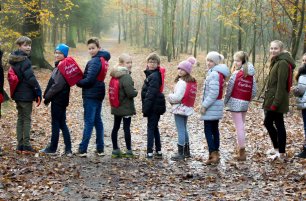Exploring Practical Life Through Cloth Washing
Toddlers need hands-on experience with life skills in real purposeful ways.
In a Montessori environment, we call this practical life work. This cloth washing activity is extremely beneficial for your child because it gives them the opportunity to practice a variety of skills such as pouring water, scrubbing, squeezing, making soap bubbles, mopping, and cleaning spills. Through these steps, your child is strengthening their hand muscles and hand-eye coordination, learning about the changes from dry to wet materials, and internalizing a sense of order. These skills help build a foundation of self-confidence and independence which your child will carry with them as they continue to grow and learn, setting them up for success later inlife. Practical life activities, like cloth washing, can easily be introduced into your home simply by knowing what to use, the proper steps, and how to set it up appropriately given your space.

In our communities, we work together and everyone plays a part to help in its functioning. This gives the child a sense of belonging and through participation, they feel like a valued member with a sense of purpose. This period of growth is important in creating the young child’s sense of self and helps them to become confident, responsible, and caring for the world around them. Providing opportunities to gain practical life knowledge and skills and creating an environment that meets the child’s’ needs are both essential in helping our children reach their fullest potential.
by Lindsey Taylor
Want to learn more? Read our next article:

